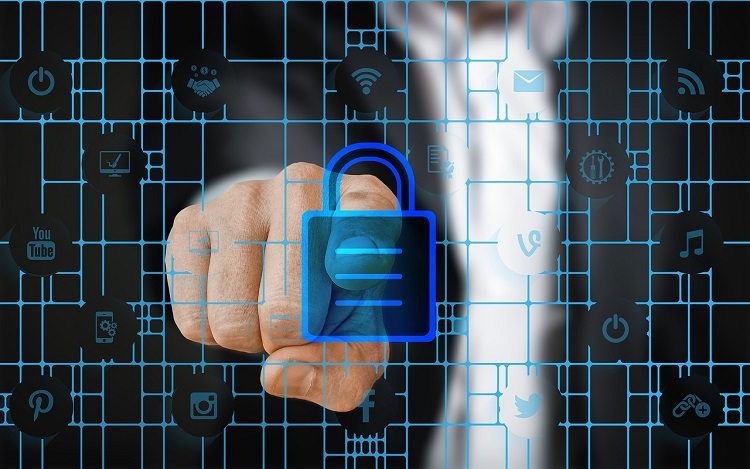Since the volume of generated and processed data continues to rise at exponential rates, the complexity of data protection grows.
Access to data can be critical, so there is no room for unexpected data shutdowns. As a result, ensuring that data can be restored easily after corruption or failure is an important aspect of data protection. Protecting data from compromise and ensuring data privacy are two other important parts of data protection.

Because of the coronavirus pandemic, millions of workers worked from home, requiring the need for remote data protection. And if you are a small business owner, you need to adjust your security in order to ensure your data is protected wherever your workers are, whether from a data center from your office or laptop computers at home.
What is Data Protection?
Personal data refers to all information involving you, whether it is private, professional, or public. In an online world, where large volumes of personal data are instantly exchanged and transferred across the world, it is becoming more difficult for individuals to keep ownership over their personal information. This is where data protection comes into play.
Data protection refers to the procedures, safeguards, and binding laws set in place to secure your sensitive information and keep you in charge of it. In brief, you should be able to determine whether or not you want to disclose any information about yourself, who has access to it, for how long, for what purpose, and you should be able to change your personal information settings whenever you choose to.
Governments have an interest in maintaining the security of personal data as well. Criminals hacked 21.5 million documents from the US Office of Personnel Management in 2015, which included extremely classified confidential information for government employees and their family members. This method of attack is becoming more common around the world, and countries must take steps to help secure all individuals’ personal information.
What Data Needs to be Protected?
Employee logs, customer details, membership plans, purchases, and data collection are all examples of key pieces of information that companies typically hold. This is intended to save data from being used for fraud by third parties, such as phishing scams and identity theft.
The following are examples of common data that a company may store:
- Names
- Addresses
- Emails
- Telephone numbers
- Bank and credit card details
- Health-related information
What Is The Difference Between Data Protection, Security, and Privacy?
People tend to use the words data protection, data security, and data privacy interchangeably. And yes these three terms are interrelated, however, their meanings are different.
Data protection protects data from interruption and loss through backup and recovery.
Data security refers to the steps taken to protect the confidentiality of the data itself from exploitation and malware. It protects against both internal and external threats.
Data privacy refers to controlling data access. Consumers can decide who has access to their personal data as well as what information is public. Nuwber can show your information that is currently publicly available. Understandably, a lack of data privacy will result in data security problems.
Why is Data Protection Important?

First, the aim of personal data protection is not only to protect consumer information but also to protect a person’s basic rights and freedoms in relation to that data. It is critical to ensure that people’s rights and liberties are not being abused when accessing sensitive records. For example, inaccurate personal data processing can result in a person being passed over for a job opportunity or, worse, losing their current job.
Second, failure to comply with personal data protection regulations can lead to much harsher consequences, such as withholding all funds from a person’s bank account or even causing a life-threatening condition by altering health records.
Third, data protection laws are required to ensure balanced consumer-friendly commerce. Personal data protection provides a scenario in which, for example, personal data cannot be easily sold, giving consumers a voice-over which businesses can promote to them and what kind of offers they can advertise.
Mobile Data Protection
Backup and recovery for mobile devices is one of the most difficult data protection issues. Data extraction from these devices can be complex and unreliable connectivity makes scheduling backups difficult, if not impossible. Furthermore, mobile data protection is challenged by the need to keep personal data saved on mobile devices.
One approach to data privacy on mobile devices is selective file sync and share. While not an actual backup, file sync-and-share products usually use synchronization to sync users’ files to a directory in the public cloud or on a company’s network. That location must then be backed up. File sync and share allow users to view the data they need from a mobile device while still synchronizing any modifications they make to the data with the original copy.
What Can You Do To Protect Yourself?
These security basics will help you protect your data but you must remain vigilant:
- To secure yourself from the most recent attacks, install security software on your devices.
- Secure your accounts with unique, one-of-a-kind passwords that include at least 10 uppercase and lowercase letters, symbols, and numbers. Instead of writing them down use a strong password manager.
- Do not use unsecured Wi-Fi networks to access personal data or social media sites.
- To weed out unsolicited e-mail, use a spam filter. It should be noted that the filters are not flawless. They might miss certain messages or label messages that you did not want to receive as spam.
- Don’t click on the random links or open unsolicited messages and attachments. Hovering the mouse over a link without clicking it will often reveal where it leads. If you get an email from your bank with a connection to a website registered in another jurisdiction, do not open the link and delete the email.
To maintain the security of personal data, it is important to understand what data is being collected, why it is being processed and on what grounds. Furthermore, it is critical to determine which protection and security procedures are in place.









































